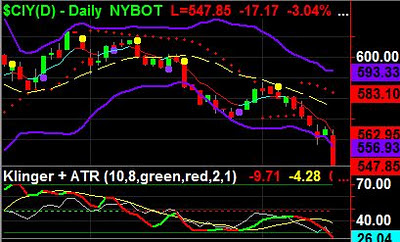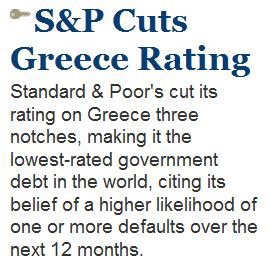The Euro is down nearly 1% this morning, which is a large move for the currency markets.
After trending gently higher for the first half of the week, the euro has been sold to new three week lows in response to the disappointing Q4 GDP figures. The GDP figures are of course backward looking and more recent data, such as the PMI figures and German factory orders suggest the regional economy is stabilizing here in early Q1.
There is a middle step to go from the GDP figures to the euro and that is the interest rate channel. There has been some speculation that the passive tightening of the euro area financial conditions (including the shrinking of the ECB's balance sheet) and the strength of the euro would prompt the ECB to cut the refi rate later in Q1. The poor GDP readings bolster such expectations and this can be seen in short-term interest rates. The March Euribor futures contract is now implying 0.24% rate, having matched the lowest rate since Jan 23, or before the early repayment of LTRO I was announced.
Another way to see this is in the US-German 2-year interest rate differential, which continues to track the euro-dollar exchange rate. Recall the sequence of events. In early Dec 12, the US was offering about 32 bp more than Germany on 2-year obligations. By late January, the US was at a 2 bp discount. However, this month it has been trending back toward the US and today, at 8 bp, the US premium is the largest since mid-Jan.
The euro's drop today indicates the downside correction to the euro began earlier this month is not complete. A break of $1.3310 signals a potentially quick move toward $1.3270. Sterling's slide has been extended and it briefly dipped below $1.55 for the first time since August. The unwinding of long euro-sterling positions is helping sterling steady against the greenback.
The day of disappointment actually began in Asia, where Japan reported a 0.1% contraction in Q4 GDP. The consensus had called for a small increase. It is the third consecutive quarterly contraction. Exports, which fell for seven months through Dec was an obvious drag and business investment was also a drag. The BOJ concluded its two day meeting, leaving policy unchanged. It assessment was tweaked higher as it recognized that the "economy appears to have stopped weakening". The yen is largely sidelined today as the dollar continues to consoldiate within Monday's range.
Fro the first time in more than a week, a Japanese official cited specific dollar-yen rates. Iwata, who is thought to be vying for the BOJ governor position, suggested the JPY95 area was appropriate. He opined that a correction of the yen's strength is vital to achieving the 2% inflation target and was sympathetic to changing the BOJ charter. He has also been an advocate of foreign bond purchases. While his comments may play well in Japan, they probably are not helpful in securing international standing, which was also a criteria cited by senior government officials.
Some press reports are playing up comments by the Riksbank governor yesterday that seemed to accept the krona's strength and suggesting Sweden entering the "currency war" on the other side. This seems to be an exaggeration. First, this is essentially what Weidmann and Draghi have said about the euro. It is near long-term averages. That means that the current rate is acceptable. Second, about 7 months ago when the euro was at $1.20, the US did not complain about the dollar's strength.
In fact, outside of one Fed official expressing some misgivings about what Japanese officials were saying about the yen, and Treasury Secretary designate Lew endorses of a strong dollar policy, the US has been as usual quiet about the exchange rate. Easing monetary policy when one's inflation is low and the output gap is large is not a shot in currency war.
The euro zone area GDP contacted by 0.6% in Q4. The market expected a 0.4% contraction. Most countries, including Germany, France and Italy's contractions were more than expected. Canada looks to be fastest growing in the G7 at the end of last year. A combination of construction spending, retail sales, trade figures and the latest inventory data suggest that the contraction in Q4 US GDP may be revised to show a small uptick. The revision is due Feb 28.
































